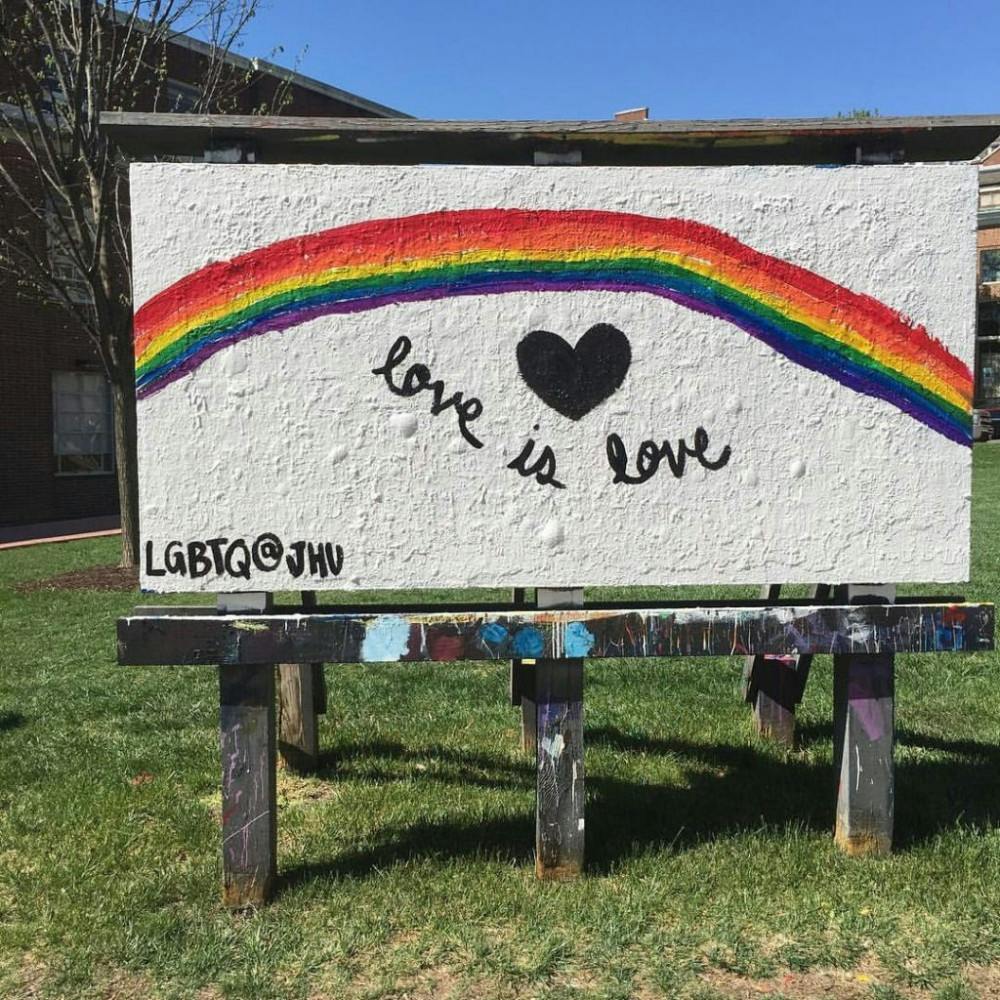I came out as gay in sophomore year of high school, but in my small town in north Texas I wasn’t exposed to much discourse about sexuality and identity.
During orientation week at Hopkins, I attended an LGBTQ meetup, and from there a world of new ideas opened itself up to me.
Now, I’m a member of the Diverse Sexuality and Gender Alliance (DSAGA) and an intern with the Office of LGBTQ Life, and I’ve put together a few pieces of advice for incoming LGBTQ students.
Be open to new experiences
Listen to the perspectives around you, because they are probably very different and more numerous than those in high school. In the next few days and weeks you’re going to meet a lot of new people, many of whom will challenge your beliefs and ideas, and that’s a great thing.
It can be challenging at times, but if you let yourself be open and listen to all the new voices around you, then you will be challenged to think of things that have never occurred to you before.
The first week of freshman year was like a wave of new ideas.
It might be tempting to close yourself off to that, but I encourage you to soak up as much of it as you can, because you will be better for it.
Hopkins students are smart, perceptive and communicate well, and this is the prime environment to think more about your sexuality or gender identity (as well as lots of other big ideas).
Get involved with different groups
Aside from being a nice break from homework every Monday night, DSAGA meetings create a safe space for a conversation about identities.
The number of students fluctuates each week, but there’s normally about 20 to 30 members in attendance, enough to offer a range of perspectives and opinions while maintaining a small group environment. The meetings are normally structured around a central theme that often responds to current events.
However, the group primarily connects queer individuals in a space where they can ask questions, take a break from the stress of classes and work and make friends with other LGBTQ students.
If you’re interested, check out the Hopkins chapter of Out in Science, Technology, Engineering & Mathematics (oSTEM), a national group dedicated to supporting LGBTQ students in STEM.
This group’s regular meetings have focus less on discussing queer issues and aim to provide professional and networking opportunities to students. The group is not exclusive to queer students in STEM, so feel free to look into oSTEM regardless of your major.
Take advantage of events
The queer groups on campus often host speakers, panels, or group discussions focused on particular themes, and these are great opportunities to better understand perspectives of other students, as well as those of LGBTQ leaders outside of Hopkins.
These events usually take place outside of the normally scheduled meetings and often attract a wider range of queer students and staff.
The Office of LGBTQ Life also hosts identity-specific meetings for a range of intersections, including queer students of color, asexual students, LGBTQ survivors of sexual assault and LGBTQ people of faith.
These closed meetings are attended by small groups of students with the aim to provide a safe space for discussion about specific intersections of LGBTQ identities.
Also, keep an eye out for programming related to queer issues that might not be hosted by LGBTQ groups.
Often, other student groups will invite queer speakers, or will dedicate one event in a series to relevant queer discussion. Attending these events is a great way to get outside of your normal circle and hear what others are saying about LGBTQ issues.
Scope out other resources on campus
The Office of LGBTQ Life offers a range of resources for queer students to take advantage of.
A great program for new freshmen is the peer mentoring program, which pairs each student with a queer upperclassman to meet with regularly throughout the semester. LGBTQ Life also hosts coffee hours for students to meet with other LGBTQ students and staff in informal settings.
Outside of queer groups on campus, there are many other organizations committed to supporting queer students. The Health and Wellness Center has information online about LGBTQ mental and sexual health and is dedicated to providing affirming care for all Hopkins students.
The Counseling Center also offers supportive, confidential individual counselling, as well as an LGBTQ Student Support Group that meets weekly to facilitate group counselling for queer students.
Be safe and be yourself
Take advantage of the resources above to make sure you feel safe and happy at Hopkins, and keep in mind that your fellow students and the University’s staff are committed to making sure you can comfortably express yourself.
Check out some organizations that will give you a space to think about and discuss your sexuality or gender identity. Most importantly, talk to people and make friends, both in queer groups and just in general, and be open to their ideas.

















